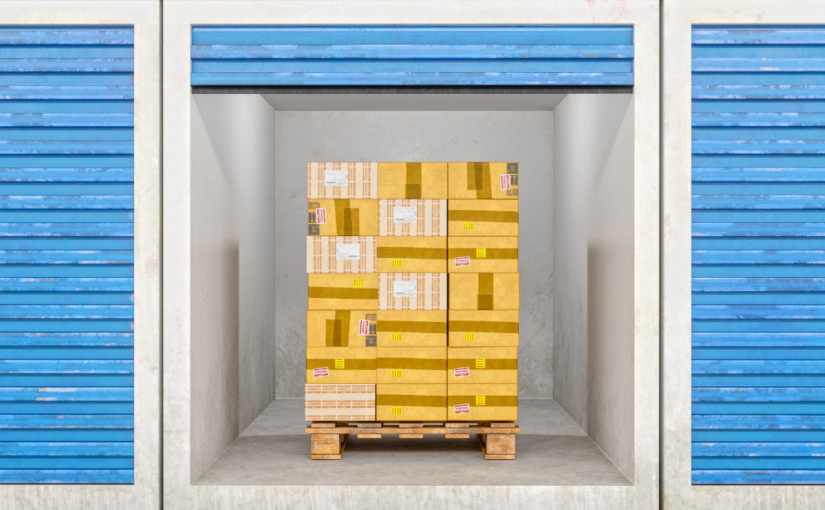back
The role of due diligence in self-storage property financing
03-2023

Self-storage has emerged as one of the most lucrative industries in today’s fast-paced society. The demand for self-storage facilities is increasing as a result of the expansion of e-commerce and an expanding population. Before funding a self-storage unit, investors wishing to invest in the self-storage market must perform extensive due research. due diligence in self-storage property financing is a crucial procedure that aids investors in comprehending the advantages and disadvantages of funding a self-storage facility.
What is Due Diligence?
Investors carry out due diligence in self-storage property financing before financing a self-storage facility. It entails investigating the property’s financial and legal features to make sure there are no unanticipated problems. Due diligence is a process that assists investors in decision-making and risk mitigation when financing a self-storage facility. Investors can appraise a property, find any problems, and make a fair and acceptable offer with the aid of due diligence.
Financial Due Diligence
The process of due diligence must include financial due diligence. In order to assess the self-storage property’s financial situation, financial records must be inspected. Reviewing the property’s income statement, balance sheet, cash flow statement, and tax returns are all parts of the financial due diligence process. Investors can use this information to assess a property’s profitability and spot any problems that could harm its financial stability.
In order to ascertain the property’s occupancy rate and rent roll, investors need also analyze the tenant leases. Investors can use this information to estimate the prospective revenue and occupancy rate of a property. Investors should also look at the property’s outgoings, such as taxes, insurance, upkeep, and utility expenditures. This facilitates calculating the property’s net operational income for investors (NOI).
Legal Due Diligence
Another crucial component of the due diligence process is legal due diligence. In order to confirm that the self-storage property is legally sound, it entails analyzing the legal documentation of the property. This include going over the title report, the zoning regulations, the environmental reports, and any other relevant legal documents.
To confirm that the property has a clear title and is free of liens or other encumbrances, investors should study the title report. Investors should also check the zoning regulations to make sure the property is permitted for self-storage. In order to discover any potential environmental risks that might harm the property, investors should also check any environmental reports.
Physical Due Diligence
Another essential component of the due diligence process is physical due diligence. It entails physically inspecting the self-storage facility to find any physical problems that could reduce the value of the asset. This include looking at the structure’s foundation, roof, electrical and plumbing systems, as well as any other visible components of the building.
Investors should also look at the property’s security features, such as the alarms, cameras, and access controls. This makes it easier for investors to assess the property’s security and spot any potential security problems.
Why is Due Diligence Important?
For a number of reasons, thoroughness is crucial. It aids investors in identifying any potential hazards related to funding a self-storage facility, to start. This enables investors to make well-informed choices and reduce risks that can have an impact on the property’s profitability. Also, due diligence enables investors to ascertain the property’s fair market worth, which enables investors to make a competitive offer.
Also, due diligence aids investors in locating any potential legal problems that might have an impact on the ownership of the property. This involves figuring out whether the property has any liens or other encumbrances that could reduce its value. Investors can find out whether there are any potential physical problems that could reduce a property’s value by using due diligence. This involves locating any structural or upkeep problems that would need quick care.
Before funding a self-storage facility, investors must engage in a procedure known as due diligence. In order to detect any potential risks or problems that could affect the property’s value or profitability, it is necessary to examine the financial, legal, and physical components of the asset. By carrying out their due research, investors can reduce the risks involved in financing a self-storage facility and make wise judgments. In the end, due diligence aids investors in figuring out the property’s fair market value and making a reasonable offer that accounts for any potential problems or dangers. Due diligence is therefore an essential step in the financing of self-storage properties that should not be missed.
F2H Capital Group is a debt advisory firm specializing in negotiating the best terms for your commercial real estate projects. The company offers a range of financial products and services, including fixed loans, bridge loans, and construction loans across all asset types. Please contact us for any of your financing needs.

